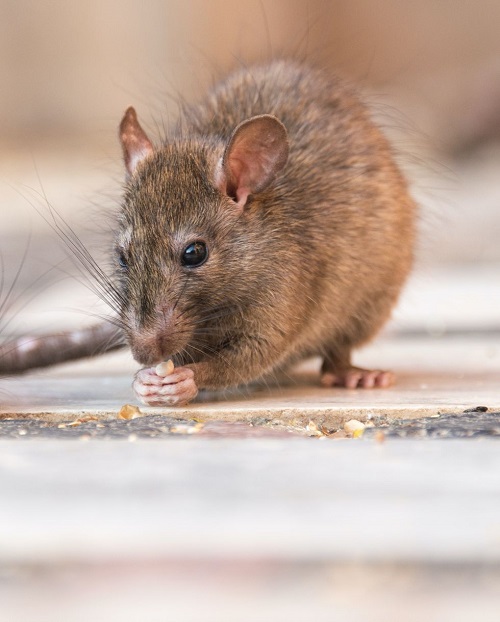Is Killing Rats with Salt Possible? Is it a good way to get rid of them? Does it work? Keep reading to get all the answers!
Have you ever wondered if something as simple as table salt could be your secret weapon in the never-ending battle against rats? You’re not alone! This unconventional method has generated quite the buzz among homeowners and gardening enthusiasts alike, promising a low-cost, readily available solution to a nagging problem. So, Is Killing Rats with Salt Possible? The answer might shock you.
Will Vinegar Kill Chameleon Plant | Houttuynia Cordata’s Invasiveness
Is Killing Rats with Salt Possible?
Using salt to kill rats would likely be a slow and painful process for the animals, which would not be considered a humane method of pest control.
Ethical and Humanitarian Concerns
- Inhumane: Consuming high amounts of salt may result in prolonged suffering for the animal, which is considered inhumane.
- Non-Specific Targeting: Salt can’t discriminate between species, meaning other non-target animals (or even pets) could be affected.
Legal Implications
- Animal Welfare Laws: Many jurisdictions have laws that require humane treatment of animals, including pests. Using a method that causes undue suffering could be a violation of these laws.
- Environmental Protection Regulations: The use of any substance as a pesticide or rodenticide is usually regulated, and the use of a non-approved substance could be illegal.
- Endangered Species Act: In some areas, the law protects certain species of rodents. Killing these animals, even if they are pests, could be illegal.
Consequences
- Fines: Using inhumane or non-approved methods can result in hefty fines.
- Legal Action: In some cases, criminal charges could be filed for animal cruelty.
Effectiveness
- Unreliable: There’s no scientific backing to suggest that salt is an effective rodenticide. The animal might consume an insufficient quantity, making the method ineffective.
- Secondary Poisoning: Other animals might consume the poisoned rodent, leading to unintentional poisoning.
Best Ways on How to Get Rid of Spider Mites on Indoor Plants
Health Risks
- Contamination: Salt mixed with other substances may contaminate soil or water.
Practicality
- Dosage: It would be difficult to determine the right amount of salt that would be lethal for a rat but not for other animals.
- Application: Even if it were effective, you’d need to get the rat to consume the salt, which could prove challenging as rats are wary of new foods.
Other Effective Ways to Keep Rats Away from Garden and Home
1. Snap Traps
- Effectiveness: Highly effective when set up correctly.
- Humane: Causes instant death, minimizing suffering.
- Usage: Set up in areas where rodents frequently appear.
2. Live Traps
- Effectiveness: Highly effective for capturing rodents.
- Humane: Does not harm the animal, but you’ll need to release it far from your home.
- Usage: Set up in areas where rodents are active.
3. Rodenticides
- Effectiveness: Highly effective, but use as a last resort.
- Humane: Varied, depending on the type used.
- Usage: Follow the manufacturer’s instructions carefully, and keep away from pets and children.
4. Professional Pest Control Services
- Effectiveness: Usually very effective.
- Humane: Methods used are generally in line with humane pest control practices.
- Usage: Call a qualified professional for evaluation and treatment.
39 Bizarre Pest Control Remedies and Ideas for Gardeners
5. Use Natural Predators
- Effectiveness: Moderate.
- Humane: Natural method.
- Usage: Keep areas around your home inviting to predators like owls and hawks.
6. Additional Prevention Tips
- Seal Entry Points: Close any holes or gaps where rodents can enter your home.
- Sanitation: Keep your living area clean to reduce the attraction of rodents.
- Secure Food Sources: Store food in airtight containers.
- Yard Maintenance: Keep the yard clean to reduce shelter opportunities for rodents.
Is Killing Rats with Salt Possible – Conclusion
Simply put, using salt to kill rats is highly ineffective. Rats are remarkably resilient creatures and can tolerate varying conditions. The amount of salt required to fatally dehydrate a rat would be impractical to administer.
There is little to no scientific backing for using salt as a rodent control method.



